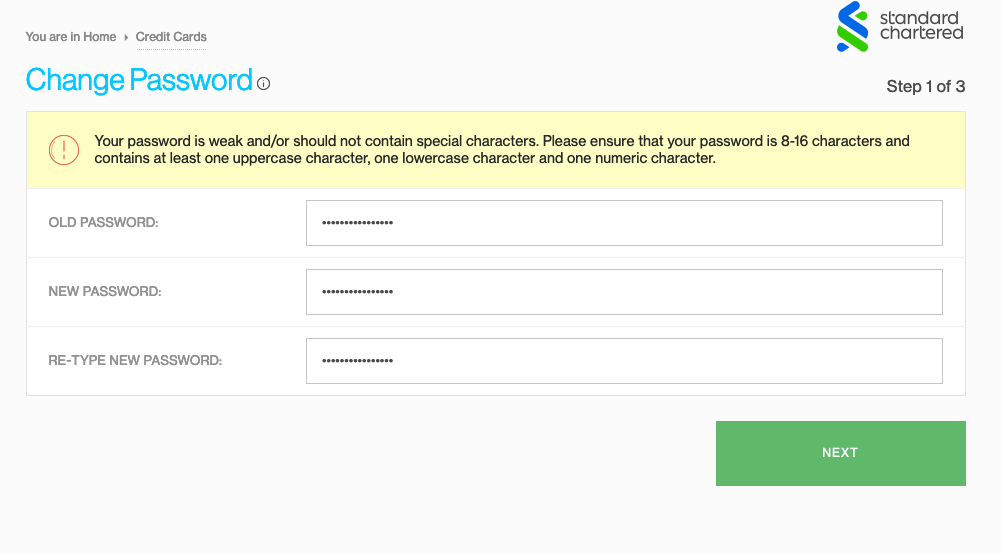The case for passphrase
Recently, I have been cleaning up accounts that are flagged as potential risk for password leak. It has been a terrible yet interesting user experience to reset my password from various sites.
Not all websites allow passphrases to be your password. Especially, traditional banks. They impose a one-word-alphanumeric-and-symbols kind of password. Take Standard Chartered for example,

What does a strong password mean? Cryptographers measure it using entropy, a mathematical approximation of password strength. In other words, how resistant it is to computers guessing by brute force.
Password entropy is expressed in terms of bits and this is the formula to calculate it:
\[E = log{_2}(R^L) \implies E = L * log{_2}R\]\(R\) is the number of unique characters allowed in the password \(L\) is the number of characters of the password
What this means is the higher the entropy, the more complex it is for the attacker to guess. We can also deduce from the formula that increasing either the password length, \(L\) or using more characters \(R\), will strengthen the password1.
Let’s calculate the entropy range from the Standard Chartered example.
| Characters allowed | Pool Size |
|---|---|
| A-Z | 26 |
| a-z | 26 |
| 0-9 | 10 |
So the entropy range Standard Chartered set is 47.6 to 95.2 bits.
If we use a passphrase with only lower and uppercase characters, with words separated by a hyphen, the entropy will be higher:
\[E = (5 * 3 + 3) * log{_2}(26 * 2)\]A passphrase is a string of words. So let’s assume a minimum of three words with an average of 5 characters.
\[E = \text{102.607914927 bits}\]With a passphrase, your password entropy is minimally 102.6 bits, higher than the maximum value from Standard Chartered. This means that it will take \(2^7\) more guesses to break the passphrase.
Besides entropy, passphrases are much easier to remember because you can make word connections. For example you can have a password like baking-strawberry-pie with an entropy of 119.7 bits. That is still extremely resistant to a machine that can make 2 billion guesses per second2.
The best way to secure your online accounts is to use a password manager like 1Password or Bitwarden. It is able to generate a unique passphrase for every account and auto-fill from your browser or mobile. You should also enable 2FA where possible as relying on strong passwords alone is not sufficient.
Let’s leave complicated password rules to fun games like https://neal.fun/password-game/ instead.